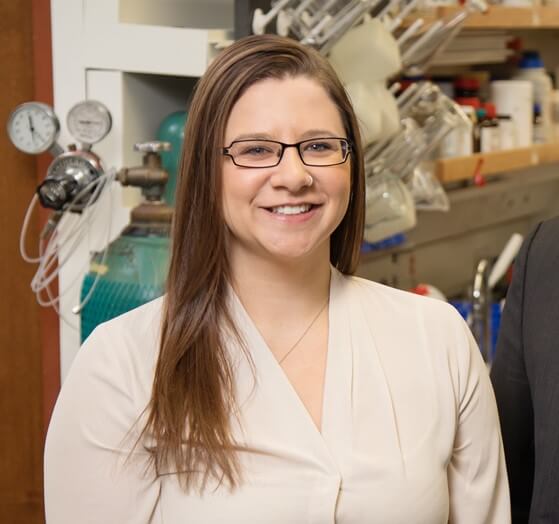Hailey Knox, Chemistry
Tissue Microenvironment (TiMe) Program, 2018 Cohort
Where are you working now?
I am currently working as a postdoctoral scholar with Professors Dennis Dougherty and Henry Lester at the California Institute of Technology.
What are you currently researching?
I have pivoted to studying the chemistry of neuroreceptors. I wanted to use my postdoctoral fellowship as an opportunity to apply what I have learned about chemical biology to new biological problems, and so far, I have really enjoyed the learning experience I have had here at Caltech.
Briefly, my research is focused on probing the key binding interactions that occur between neuroreceptors and the small molecules that bind them. Understanding these interactions can inform the design of small-molecule therapeutics that can selectively target subtypes of neuroreceptors within the same family.
How did your experience as a student in a CCIL training program help you achieve your career goals?
Being a part of the Tissue Microenvironment (TiME) training program was beneficial to me because it allowed me to regularly interact with and share my research with scientists working in a variety of different fields and approaching biological questions with unique perspectives.
Collaborative, interdisciplinary research is something I am passionate about, and I appreciate the opportunities that the TiMe training program gave me to learn about so many different research areas and methodologies.
What do you miss most about the University of Illinois?
My friends and former lab mates are absolutely what I miss most about UIUC. The UIUC chemistry department and the Chan lab specifically brought so many wonderful and talented people into my life, and I miss being surrounded by the group who came to feel like my family.
Specifically at the CCIL, I miss the opportunities it provided to hear about exciting cancer research happening on campus.
What advice would you give to students in CCIL programs now, or those applying?
My advice is to take advantage of opportunities to form new collaborations that can add to your current research. The CCIL brings people together with different areas of expertise, and it’s a great place to make connections and establish collaborations with researchers outside of your own department.
— Compiled by the CCIL Communications Team

